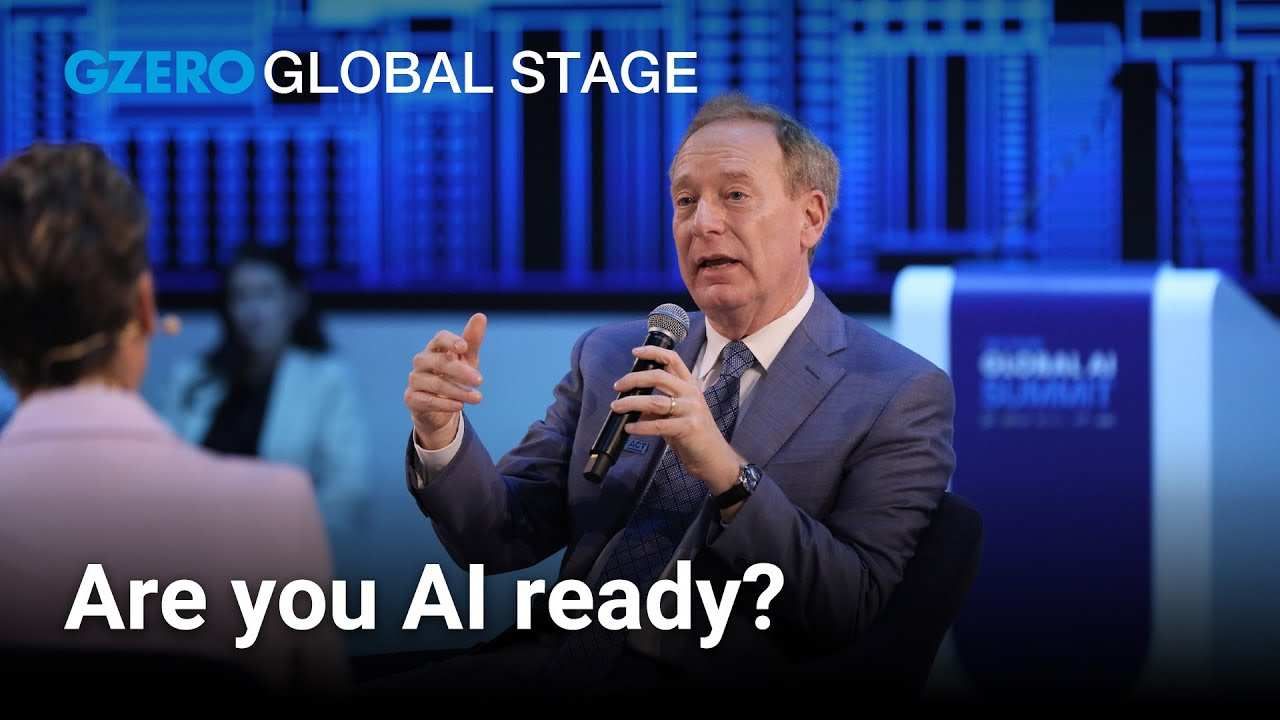November 04, 2025
As artificial intelligence transforms work, how do organizations equip people with the skills to thrive?
Brad Smith, Vice Chair and President of Microsoft, says the answer lies in understanding a new landscape of AI skills.
Speaking at the 2025 Abu Dhabi Global AI Summit, Smith outlined three key skills needed in the AI era:
1. AI fluency, the ability to use AI tools effectively;
2. AI engineering, focused on building advanced AI applications; and
3. Organizational leadership, which emphasizes guiding teams through cultural and operational change
He also highlighted global disparities in AI adoption: “We are in the global capital today of AI adoption … the UAE leads the world with roughly a 59% per capita adoption rate … the United States is only 29%.”
Smith shared these insights during the panel “Bringing AI Technology, Trust, and Talent to the World,” part of GZERO Media’s Global Stage series in partnership with Microsoft, which brings together global leaders to discuss the geopolitical and technological trends shaping our world.
More For You
With close ties to both the US and China, can Singapore survive in an increasingly fragmented and chaotic world? Singapore’s President Tharman Shanmugaratnam joins Ian Bremmer on the GZERO World Podcast.
Most Popular
Think you know what's going on around the world? Here's your chance to prove it.
UK Prime Minister Keir Starmer shakes hands with Chinese President Xi Jinping, ahead of a bilateral meeting in Beijing, China, on January 29, 2026.
Carl Court/Pool via REUTERS
This week, Prime Minister Keir Starmer became the first UK leader to visit China in eight years. His goal was clear: build closer trade ties with Beijing.
Igmel Tamayo carries charcoal to sell on the side of a road for use as cooking fuel in homes, after US President Donald Trump vowed to stop Venezuelan oil and money from reaching the island as Cubans brace for worsening fuel shortages amid regular power outages, on the outskirts of Havana, Cuba, on January 12, 2026.
REUTERS/Norlys Perez
© 2025 GZERO Media. All Rights Reserved | A Eurasia Group media company.
